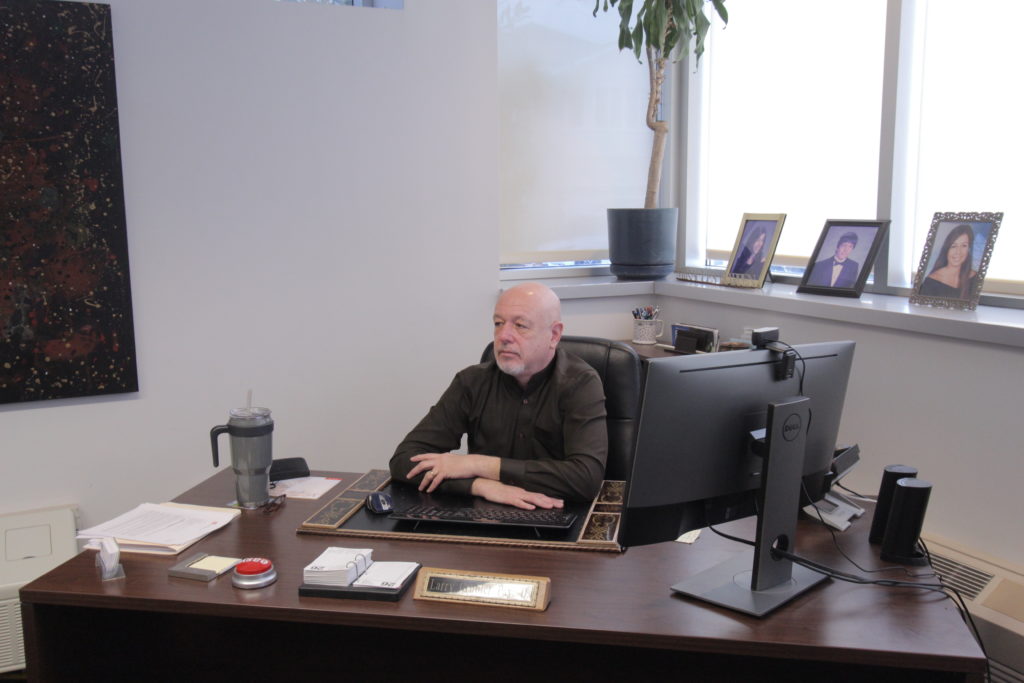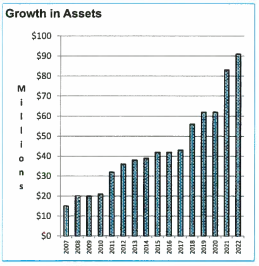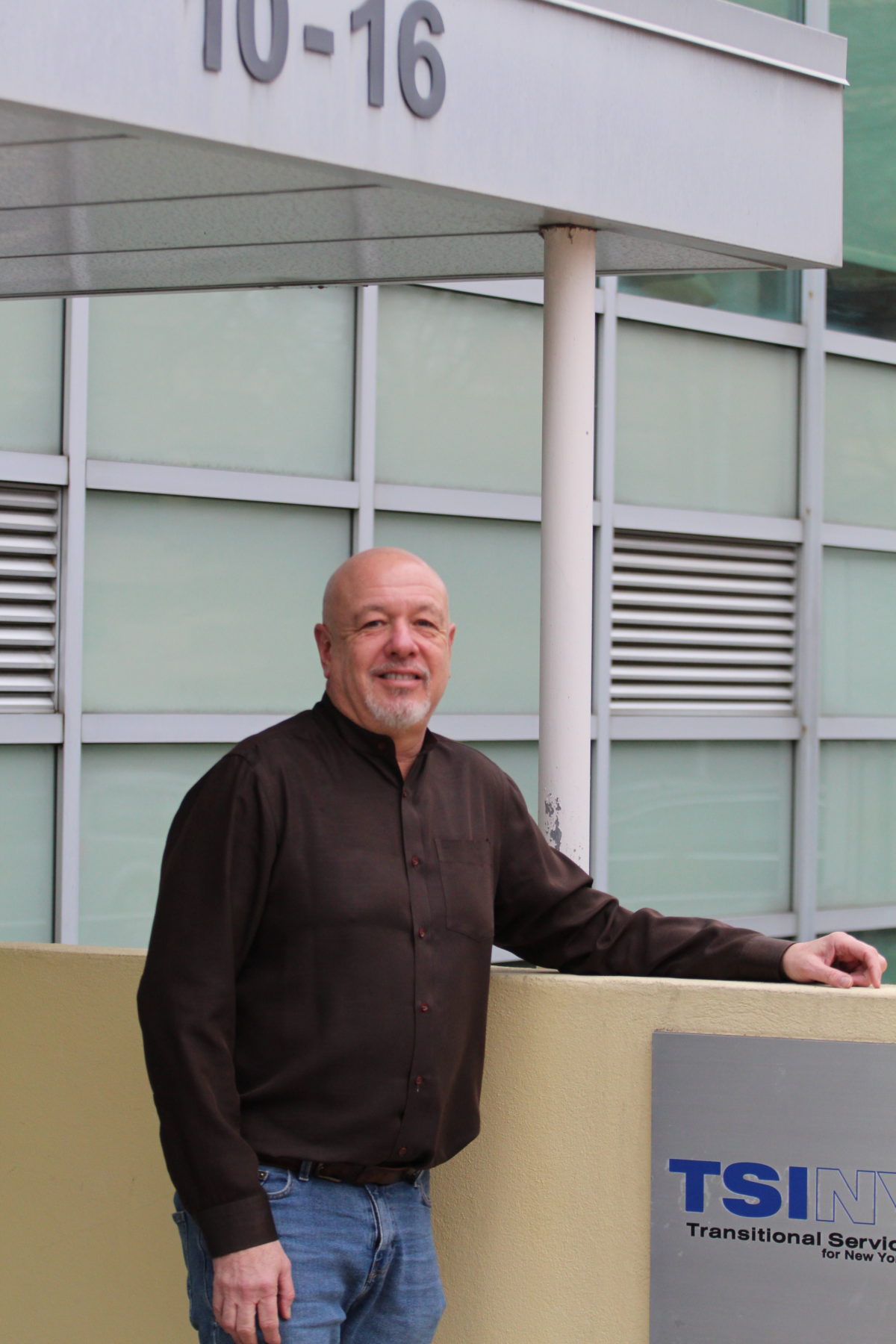Exclusive: One-on-One with Larry Grubler of TSINY
By Alicia Venter
aventer@queensledger.com

“Transitional Services is a not-for-profit mental health agency that provides both residential and outpatient services to anybody over the age of 18 who has a psychiatric diagnosis,” Larry Grubler recited, as if he had said the line a hundred times before.
He likely has — Transitional Services for New York (TSINY) works to make Queens safer for its struggling locals, not for the community’s praise and accolades.
With facilities throughout the borough and in the Bronx, TSINY, based in Whitestone, provides a continuum of rehabilitative services with a community-based approach to those recovering from mental illness.
Grubler has been the CEO of TSINY since 2007 and with the agency for a total of 31 years.
He has taken upon himself to expand the facilities and assets by which his organization can best support some of Queens’ most vulnerable.
What exactly do these rehabilitative services entail?
To Grubler, who attended St. John’s University for his masters degree and received his doctorate from Southern California University, this means that individuals have constant access to care at their own pace and need level.
The whole concept of TSINY — which has a staff of approximately 400 people — is to transition, avoiding a “one size fits all” mentality regarding psychiatric treatment.
“In the housing units, for instance, we have all the housing from supervised living settings for people that need staff available 24 hours a day, 7 days a week to teach them the skills that they need to function out in the community…so then we can go from there, and they would transition out to an apartment,” Grubler said in an interview.
TSINY offers housing to over 600 individuals, with a variety of housing situations.
The supervised community residence programs, for instance, consist of single and shared living quarters, with amenities including exercise rooms, libraries, kitchens and dining facilities.
The different buildings, programs and apartments offer a range of treatments to facilitate the eventual adjustment by their patients into the community.
Their buildings offer courtyard space and rooftop access, as to provide a safe way for the patients to socially interact with one another.
There are currently two projects under development in Jamaica, as well as two housing facilities already there, called the Delson and Amelie’s. The additional facilities are expected to be completed in 2024.
Since he became CEO, the nonprofit’s assets have grown from $12 million to nearly $100 million, largely due to the development of their residential buildings and other day facilities.
Starting with a budget of $250,000, they now have $40 million to continue with projects to meet the continually shifting needs of people with mental illness.

“There’s a lot of needs out there, and there’s been a lot of growth in the mental health field,” Grubler said. “I’ve got a really good team of people that helps support that growth. We’re constantly writing proposals to do more — to do better.”
The difference between homeless shelters and the supportive housing provided by TSINY, Grubler described, is the on-site supportive services to people living in the buildings with psychiatric disabilities.
“There’s too many people that are living in a homeless shelter to really give them the individual attention that they need to be rehabilitated… 600 people living in a building, that’s hard.”
In the residential facilities, TSINY teaches skills that residents need in order to function in the community, including how to cook, clean, budget, take medication, to do laundry, and other things “you and I might take for granted,” Grubler detailed.
“Because of the illness, which usually starts between the ages of 18 to 24, [such as] the schizophrenia, major depression and things of that nature, they don’t usually get that opportunity to learn those skills as effectively and practice them,” Grubler said. It’s TSINY’s job to step in and provide what they can to develop those necessary skills.
A crucial part of this development is job training — TSINY offers job resume building courses and on site-job support. They also have an “affirmative business,” called Turn the Page.
This used bookstore — funded by the city — allows residents to maintain a job for approximately three months to learn work skills.
Through this transitioning business model, patients are able to earn work experience and garner a sense of pride in their work abilities.
There are a number of success stories garnered from this affirmative business model, Grubler detailed, including a woman who now works on the Intrepid.
“Because of the stigma of mental illness, people don’t usually want people who are mentally ill having a program in their neighborhoods,” he said. “But with [Turn the Page], other community boards, other communities have said, ‘please open one near us.’”
Grubler would be willing to open another affirmative business, he said, with the proper funding.
Through Grubler’s leadership, TSINY continues to grow, serving Queens’ vulnerable in a community-based supportive way.
For more information on TSINY, visit www.tsiny.org.


